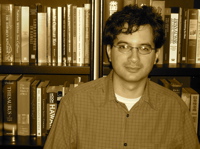BBC: The Speech that Shook the Kremlin
This month is the 50th anniversary of one of the most important speeches of the last century, when Nikita Khrushchev revealed Stalin's horrible human rights abuses. BBC 4 (the domestic news network) had fascinating 30-min program on this called "The Speech that Shook the Kremlin," which you can hear on the BBC radio player.
I am always fascinated by how countries come to terms with "truth and reconciliation" about past injustices. Perhaps what is most scary about the program is how many people in Russia today still see Stalin as a hero. I am often critical of our lack of historical understanding, but this is a different level.
When I was in high school one of my best friends was a college student who had fled the USSR. His parents were Russian Jews who lived in Lviv. He introduced me to Russian literature, and told me stories about the fear in Soviet Russia, as well as the excitement of reading Samizdat writing. When I teach about intellectual freedom here I often worry that my students can't imagine this extreme censorship, and just think I am a nut when I talk about slippery slopes to censorship. It is just frustrating when each day's headlines seem to be showing us going that way.
On a somewhat related note, our Amnesty International Student Chapter's next meeting will be this Thursday, 2 March at 4 pm at the Campus Center upper floor.
I am always fascinated by how countries come to terms with "truth and reconciliation" about past injustices. Perhaps what is most scary about the program is how many people in Russia today still see Stalin as a hero. I am often critical of our lack of historical understanding, but this is a different level.
When I was in high school one of my best friends was a college student who had fled the USSR. His parents were Russian Jews who lived in Lviv. He introduced me to Russian literature, and told me stories about the fear in Soviet Russia, as well as the excitement of reading Samizdat writing. When I teach about intellectual freedom here I often worry that my students can't imagine this extreme censorship, and just think I am a nut when I talk about slippery slopes to censorship. It is just frustrating when each day's headlines seem to be showing us going that way.
On a somewhat related note, our Amnesty International Student Chapter's next meeting will be this Thursday, 2 March at 4 pm at the Campus Center upper floor.

